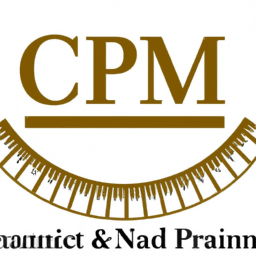Are you ready to take your project management career to the next level? Like a captain navigating the stormy seas of the business world, you need the right certifications to steer your career in the right direction. Two popular choices are the PMP Exam and the CAPM Exam, but which one will give your career the wind it needs to set sail towards success?
In this article, we will explore the battle of the project management certifications: PMP vs CAPM. These certifications are like compasses, guiding you towards professional growth and recognition. But which one holds more value? Let’s dive into the depths of these exams and compare their worth.
First, we’ll unravel the intricacies of the PMP Exam, the gold standard in project management certifications.
Then, we’ll navigate the CAPM Exam, a stepping stone for those starting their project management journey.
Finally, we’ll weigh the factors you should consider when choosing the certification that will propel you to new heights.
So, grab your life jacket and prepare to embark on this epic battle of certifications. The winds of success are blowing, but which one will carry you further? Let’s find out!
Key Takeaways
- PMP certification is for experienced professionals with 3 years of experience, while CAPM certification is suitable for beginners or newcomers to project management.
- PMP certification requires a secondary degree, 5 years of experience, and 35 hours of education, whereas CAPM certification has no experience requirement.
- The PMP exam consists of 200 multiple-choice questions covering 5 domains of project management, while the CAPM exam has 150 multiple-choice questions.
- PMP certification offers increased job opportunities, higher salary potential, and professional recognition, while CAPM certification shows commitment to professional development and is more appropriate for those with less experience.
Overview of Project Management Certifications
When comparing project management certifications, it’s important to understand the distinction between the PMP exam and the CAPM exam. In the project management industry, these certifications hold significant value and can greatly contribute to career advancement.
The PMP (Project Management Professional) exam is designed for experienced professionals with a minimum of 3 years of project management experience. It covers a wide range of project management topics and requires a deep understanding of project management principles and practices.
On the other hand, the CAPM (Certified Associate in Project Management) exam is geared towards individuals who are new to the field and have less experience. It provides a foundation of project management knowledge and can be a stepping stone towards the PMP certification.
Understanding the differences between these two exams is crucial in determining the right certification path for your career.
Transitioning into the subsequent section about ‘what is the PMP exam?’
What is the PMP Exam?
To begin, let’s explore the eligibility requirements for the PMP exam. In order to take the exam, you must have a secondary degree, such as a high school diploma, along with a minimum of five years of project management experience and 35 hours of project management education.
Moving on to the content and structure of the PMP exam, it consists of 200 multiple-choice questions that cover five domains of project management knowledge. These domains include initiating, planning, executing, monitoring and controlling, and closing.
Lastly, obtaining a PMP certification offers several benefits, such as increased job opportunities, higher salary potential, and recognition of your expertise and professionalism in the field of project management.
Eligibility requirements for the PMP exam
If you’re aiming to earn your PMP certification, you’ll need to meet certain eligibility requirements before you can take the exam. The PMP Exam is a globally recognized certification exam for project managers, while the CAPM Exam is an entry-level certification for those with less experience.
To be eligible for the PMP Exam, you must have a secondary degree (high school diploma, associate’s degree, or equivalent) and at least 5 years of project management experience, with 7,500 hours leading and directing projects. Alternatively, you can have a four-year degree and at least 3 years of project management experience, with 4,500 hours leading and directing projects.
After meeting these requirements, you can move on to the next section about the content and structure of the PMP Exam.
Content and structure of the PMP exam
The PMP exam consists of 200 multiple-choice questions that must be completed within a four-hour time limit. Did you know that the pass rate for the PMP exam is around 60%?
It is essential to understand the content overview of the PMP exam to increase your chances of success. The exam covers five domains: initiating, planning, executing, monitoring and controlling, and closing. Each domain focuses on specific tasks and knowledge areas that project managers should possess.
The questions assess your ability to apply project management concepts, tools, and techniques in real-world scenarios. The exam evaluates your understanding of project integration, scope, time, cost, quality, human resources, communication, risk, procurement, and stakeholder management.
Knowing the content structure and studying accordingly will enhance your chances of passing the exam. Moving forward, let’s explore the benefits of obtaining a PMP certification.
Benefits of obtaining a PMP certification
Earning a PMP certification can open doors to new career opportunities and validate your expertise as a project manager. The advantages of obtaining a PMP certification are numerous.
Firstly, it demonstrates your commitment to the profession and showcases your ability to successfully manage projects. This certification is globally recognized and widely respected, giving you a competitive edge in the job market.
Additionally, PMP certification can lead to career growth by expanding your network of professionals and increasing your visibility within the industry. Employers often prioritize candidates with PMP certification, as it assures them of your knowledge and skills in project management.
With a PMP certification, you can take on more challenging projects and enjoy increased job prospects.
Transitioning into the subsequent section about ‘what is the capm exam?’, it is important to understand the differences between these two certifications.
What is the CAPM Exam?
To fully understand the value of the CAPM Exam, imagine yourself stepping into a world where project management knowledge and skills are at the forefront of success.
The CAPM Exam is a globally recognized certification offered by the Project Management Institute (PMI) that validates your understanding of project management principles and terminology. It is an entry-level certification designed for individuals who want to start their career in project management.
The exam format consists of 150 multiple-choice questions that need to be completed within three hours. To prepare for the CAPM Exam, you can avail yourself of various study materials such as PMBOK Guide, CAPM Exam Prep books, online courses, and practice tests. These resources will help you gain a comprehensive understanding of project management concepts and enhance your chances of passing the exam.
As we move into the section comparing PMP vs CAPM, it is important to recognize the value that the CAPM Exam holds in establishing a strong foundation in project management.
Comparison of PMP vs CAPM
Imagine yourself in the midst of a career crossroads, trying to decide between two prestigious project management certifications: PMP and CAPM.
The comparison between PMP and CAPM is crucial in determining which certification holds more value for your career. While both certifications are recognized globally, the PMP certification offers more benefits and career opportunities.
With a PMP certification, you gain a deeper understanding of project management processes, tools, and techniques, which is highly valued by employers. Additionally, PMP certification holders have better earning potential and are often considered for higher-level project management positions.
On the other hand, the CAPM certification is ideal for individuals who are new to project management or have limited experience in the field. It provides a solid foundation and demonstrates your commitment to professional development.
Considering these factors, it is important to carefully evaluate your experience and career goals before making a decision on which certification to pursue.
Factors to Consider When Choosing a Certification
Taking into account various factors such as career goals and experience level, you must carefully deliberate before determining which certification best aligns with your professional aspirations.
When considering the cost considerations, it’s important to note that the PMP exam is more expensive than the CAPM exam. However, the PMP certification holds greater industry recognition and is often considered the gold standard for project management professionals. This certification is highly respected and sought after by employers worldwide.
On the other hand, the CAPM certification is a more entry-level certification and is suitable for individuals who are new to project management or have less experience in the field.
Ultimately, the value of each certification depends on your individual circumstances and goals, so it’s crucial to carefully weigh these factors before making a decision.
Frequently Asked Questions
How long does it take to prepare for the PMP exam?
To prepare for the PMP exam, it typically takes about 3 to 6 months of dedicated study.
Start by creating a study plan that outlines your goals and timelines.
Break down the exam content into manageable sections and allocate time for each.
Utilize study materials like textbooks, online courses, and practice exams to reinforce your understanding.
Regularly review and practice the exam questions to improve your test-taking skills.
Stay disciplined and focused throughout your preparation.
Can I take the CAPM exam if I don’t have any project management experience?
Yes, you can take the CAPM exam even if you don’t have any project management experience. The CAPM certification is designed for individuals who are interested in or starting a career in project management. It serves as a valuable entry-level certification, providing you with the fundamental knowledge and skills needed to manage projects effectively.
Obtaining the CAPM certification can enhance your credibility and increase your job prospects in the project management field.
Are there any prerequisites for taking the PMP exam?
To take the PMP exam, you must meet certain prerequisites.
These include a high school diploma or equivalent, 35 hours of project management education, and either 4,500 hours of project management experience if you have a bachelor’s degree or 7,500 hours if you don’t.
Additionally, you need to complete 35 hours of project management education.
The preparation time for the PMP exam can vary depending on your experience and study habits.
Can I use my CAPM certification to apply for higher-level project management positions?
Yes, you can use your CAPM certification to apply for higher-level project management positions. While the CAPM certification may not hold as much value as the PMP certification, it still demonstrates your knowledge and understanding of project management principles.
However, if you’re looking for more career advancement opportunities and higher earning potential, obtaining the PMP certification would be beneficial. The PMP certification is widely recognized and respected in the industry and can open doors to more senior project management roles.
Are there any differences in the exam format or structure between the PMP and CAPM exams?
When comparing the PMP and CAPM exams, it’s important to understand the differences in content and study resources.
One interesting statistic is that the PMP exam consists of 200 multiple-choice questions, while the CAPM exam has 150 multiple-choice questions. This shows that the PMP exam covers a broader range of topics and requires a deeper understanding of project management principles.
In terms of study resources, both exams have official study guides available, but the PMP exam also offers additional resources such as practice exams and online training courses.
Conclusion
In conclusion, both the PMP and CAPM certifications hold significant value in the field of project management.
While the PMP exam is recognized as the gold standard for experienced professionals, the CAPM exam offers a valuable entry-level certification for those new to the field.
Interestingly, according to a recent survey, it was found that professionals with a PMP certification earn an average of 20% higher salaries compared to those without it.
Therefore, obtaining a PMP certification can greatly enhance one’s career prospects and earning potential in the project management industry.























